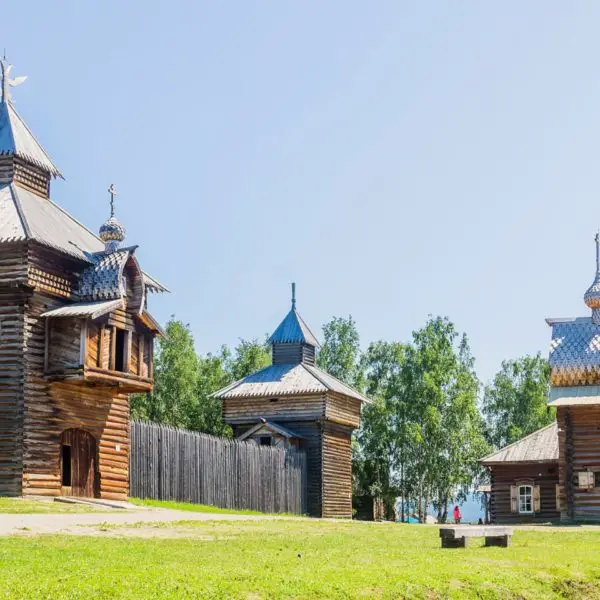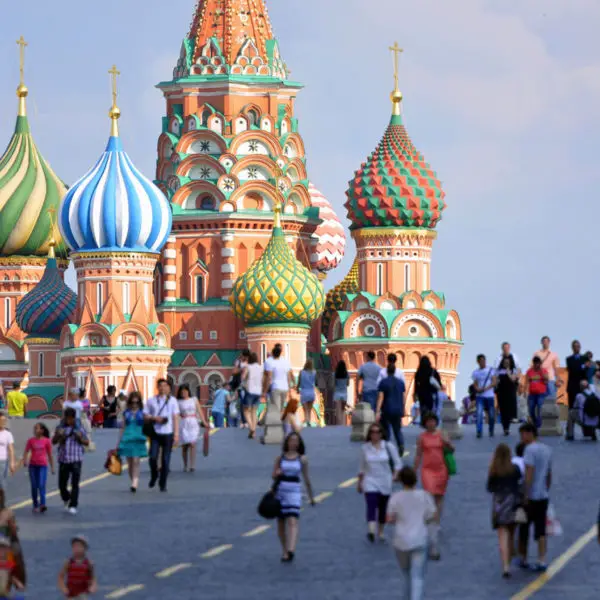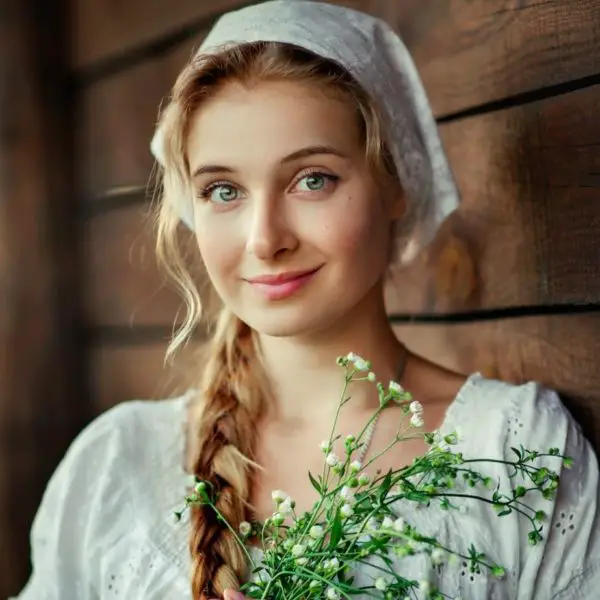Maslenitsa festival in Russia - when the pancakes never end
Russia’s Maslenitsa festival rings in the passing of winter. Also known as ‘pancake week’, the traditional Russian festivity is famous for its blini (pancakes) with many fillings and toppings, from sour cream to caviar, to salmon and all things sweet!
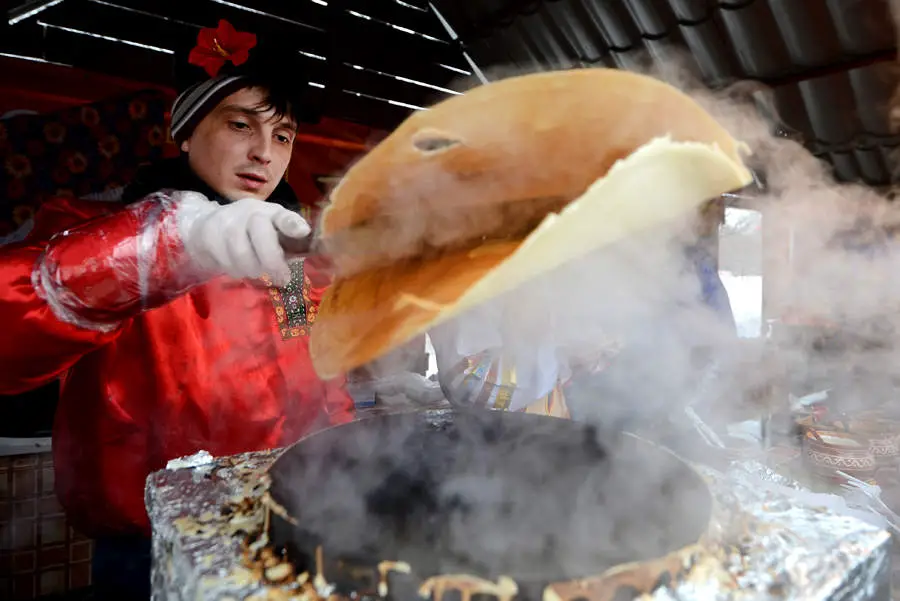
Table of Contents
How Maslenitsa is celebrated?
It is thought that the name Maslenitsa (variously translated as “Butter Week,” “Cheese Week,” or “Pancake Week” in English) comes from the fact that, according to Russian Orthodox tradition, meat is already off-limits by Shrovetide week, but dairy is not. Maslenitsa is well-known for its seven days of festivities and final dose of gluttony, as it’s the last week that Orthodox Russians can eat dairy before Lent. Naturally, each day of the festival involves pancakes, butter and many indulgent toppings, as Russians celebrate the arrival of Spring with an abundance of food, drinks, sledding and snowball fights.
Maslenitsa contains both pagan and Christian traditions and is celebrated in the last week before Great Lent, or the seventh week before Eastern Orthodox Easter. The most characteristic part of the festival is the pancakes – Russians feast on ‘blini,’ which are round and golden pancakes made up of rich foods still allowed by the Orthodox tradition, mainly butter, eggs and milk.
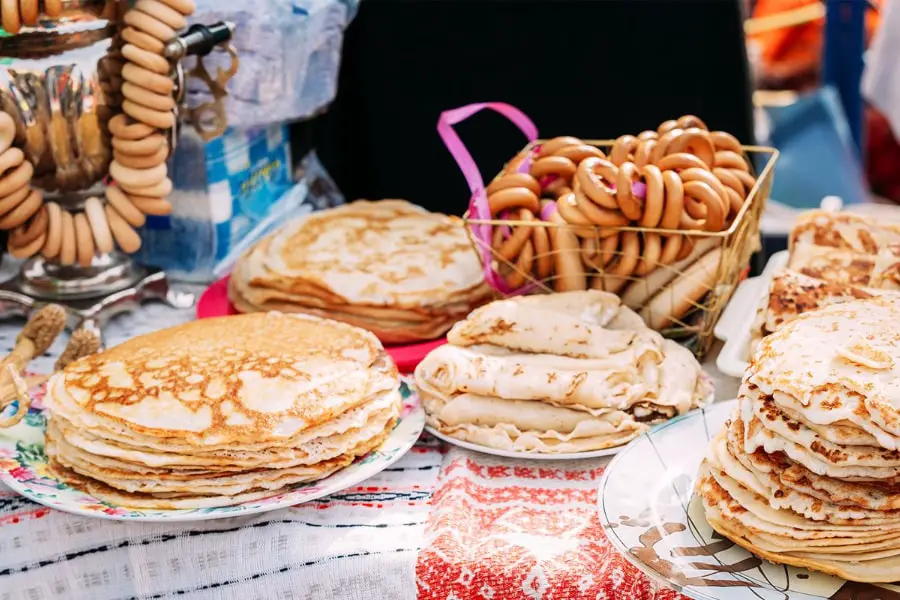
Food is a hugely important part of Maslenitsa. In folk tales, it’s been said that you must eat throughout the day as many times as a dog wags its tail, a fair challenge if you consider that the main food groups during this time are the stomach-filling, rich and often buttery blini. The blini, made every day of the week, symbolise the sun and its warmth and Russians are known to eat as many of them as possible during Maslenitsa since the seven days of festivities are followed by seven somber weeks of the Great Lent.
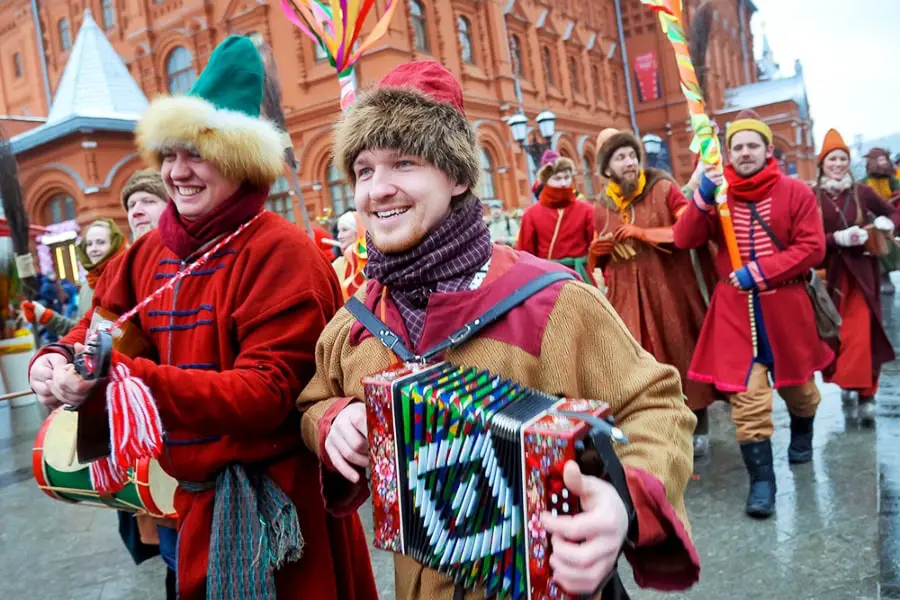
In Moscow alone, more than 500 events are planned every year to celebrate the Slavic folk holiday. The main events are set in the city’s parks, museum clusters and estates, as well as along pedestrian streets in Russian cities.
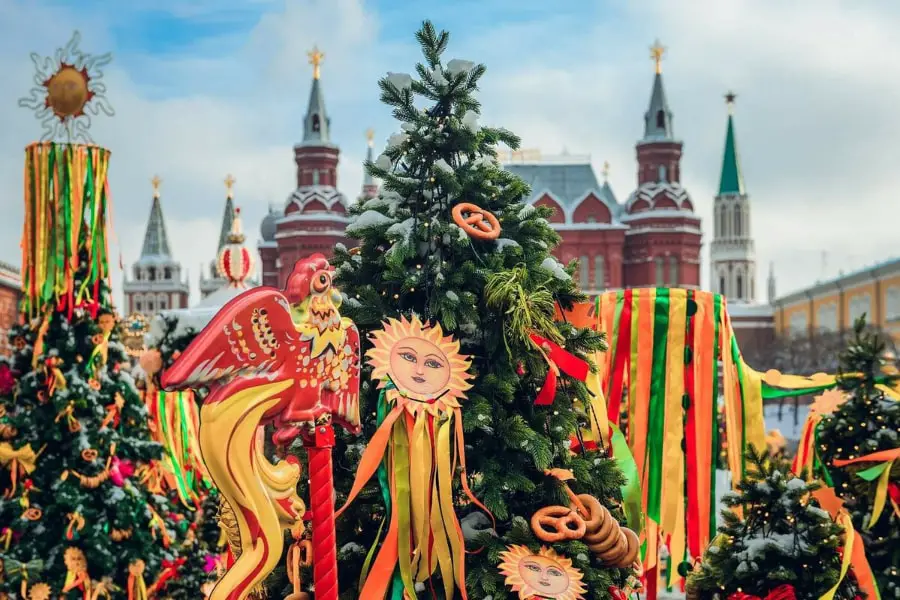
Sunday is the final day, day of forgiving – when people forgive the wrongs done against them and burn the Maslenitsa mascot, a straw doll dressed in a female costume with a pancake in her hand. This practice has become an almost iconic symbol of the festival, and the imminent end of winter.
Below is the typical Maslenitsa “schedule”:
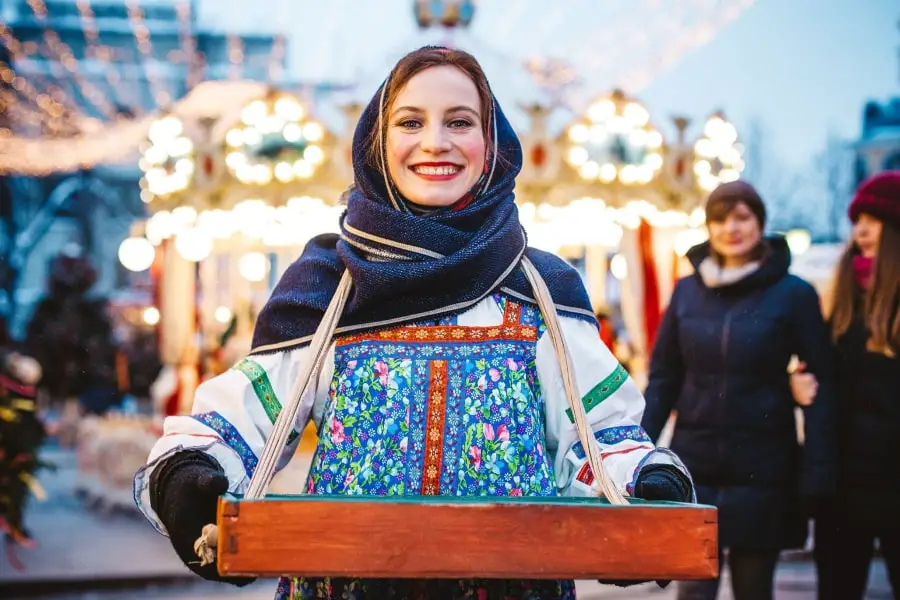
Day 1 – Welcome Maslenitsa
The first day – Russians usually eat their first (of many) blinis at 5 pm on Monday with festivities continuing late into the evening.
Day 2 – Be young again and play
The second day is for young people. Russians traditionally take part in snow sledding or go for winter walks.
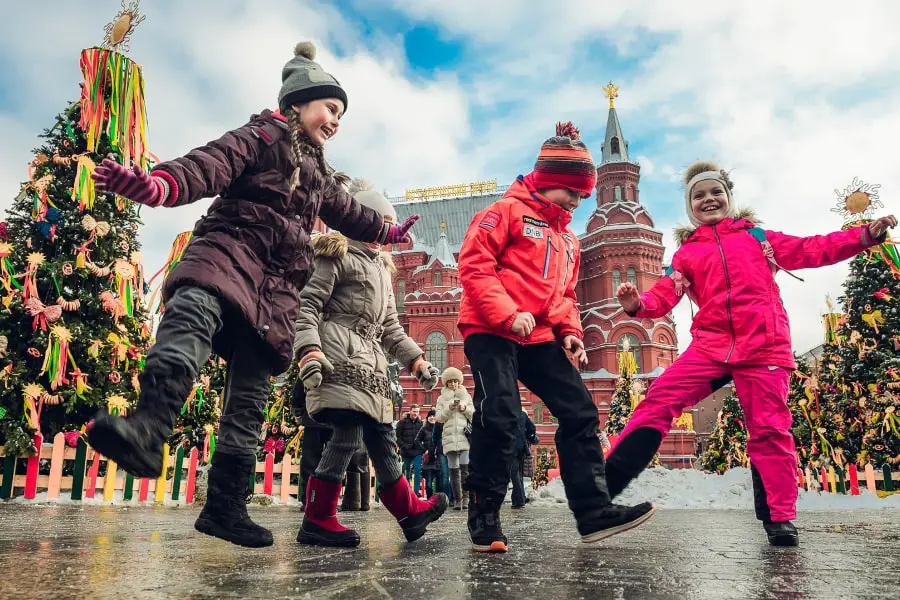
Day 3 – Indulge your sweet tooth
Symbolically the ‘sweet day’ of Maslenitsa, where restaurants and cafes in Russia’s major cities offer special menus with a huge variety of blini to try.
Day 4 – Revelry Thursday
On the fourth-day ice skating, cross-country skiing and feasting are common, as the Great Lent fast approaches. Gorky Park skating rink, in particular, comes alive with Russians celebrating Maslenitsa.
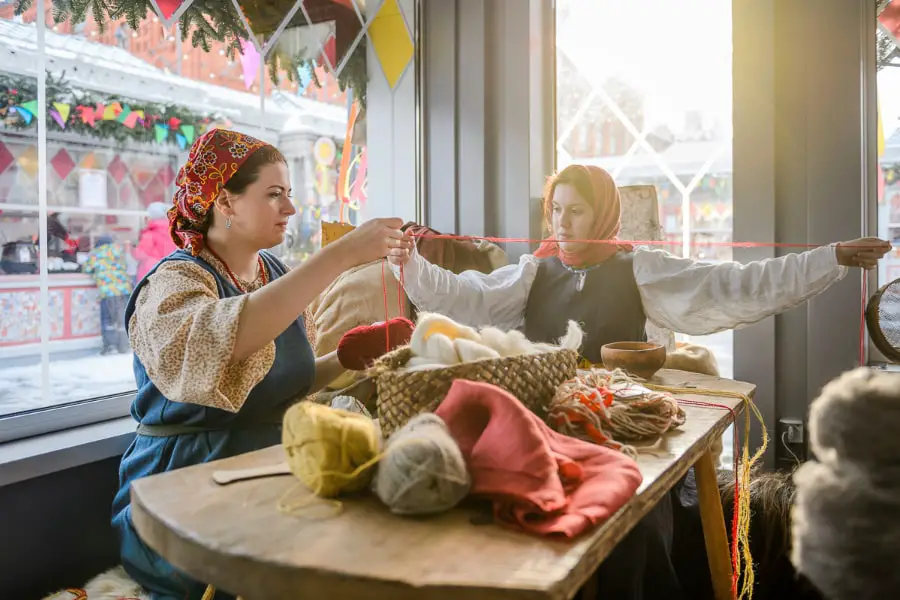
Day 5 – Mother-in-law day
Traditionally, a day for mothers and especially mothers-in-law. Families often stroll through parks across Russia to spend time together.
Day 6 – Dash through the snow
When the weekend comes, the celebrations are even grander. As it’s nearly the end of winter, day 6 is a good time to make the most of Russia’s winter sports activities.
Day 7 – Say hello to spring
The climax — as it is essentially a series of festivities to mark the passing of winter — is “Wide Maslenitsa,” when the effigy of Maslenitsa (a large figure made of straw) is burned.
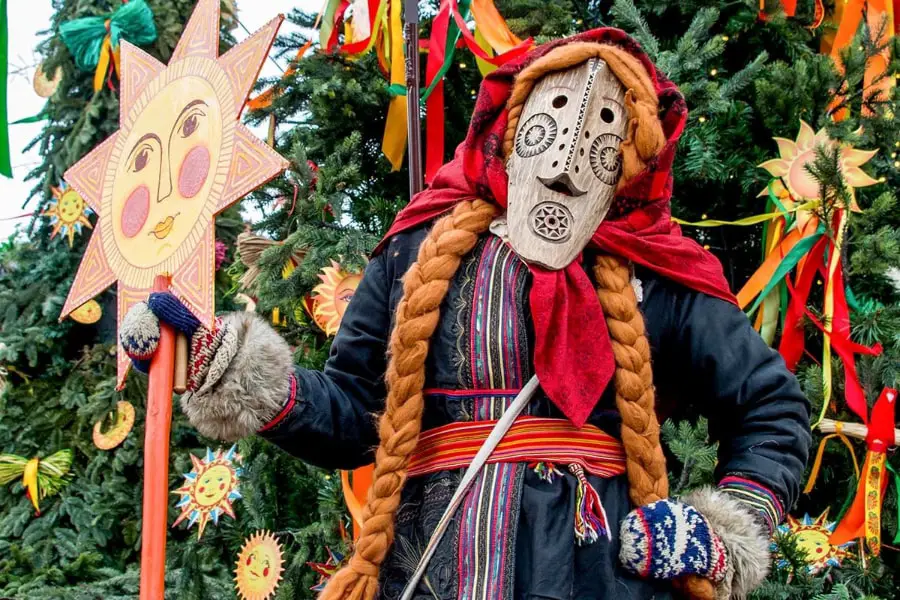
Often called ‘Shrove Sunday,’ on day 7 people ask for the forgiveness of others creating a sense of unity and joy among the crowds.
Maslenitsa is a holiday about being outside and going a little bit wild, and it would not be complete without a costume parade. During festival in different cities of Russia you’ll get to see people reveling not just in traditional Russian costumes, but also in Venetian, Hungarian, Dutch, and German garb. Enjoy Maslenitsa with traditional dancing and folk music. Step up to try your hand peasant games. Chow down on blini. Part immersive show and part just plain fun. If celebrating a folk holiday in the city center seems a bit artificial to you, why not make your way out to one of Moscow’s most beautiful and historic parks? Here you will find dancing, singing and raditional games.
If photos are not enough to convince you how fun Maslenitsa Festival is, here’s a short video taken during the festival in Moscow in 2019:
Every year in February we run the Maslenitsa Festival Tour in Moscow and St.Petersburg. This tour includes most iconic tourists attractions of two Russian capitals as well as endless festivities, pancakes and fun!
For more information about Maslenitsa Tour, contact us at [email protected] or call us +61 2 9388 9816
Related posts
Related Tours
If you have any urgent questions or enquiries, please give us a call +61 412 587 785
